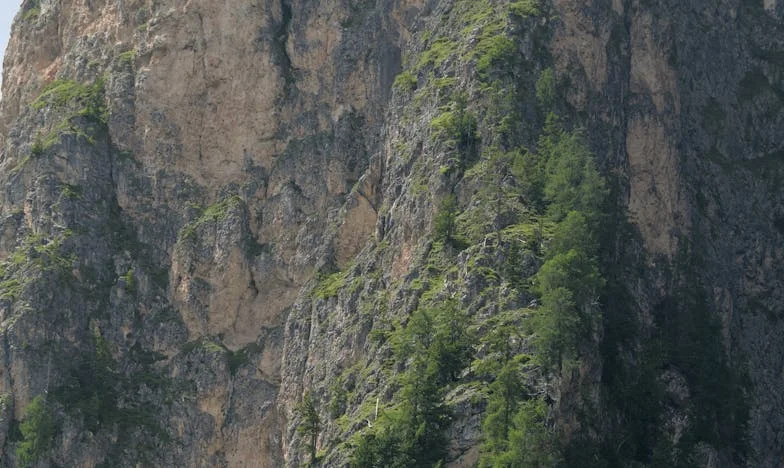The Gas Station Reunion: A Family Divided by Addiction
“Fill it up—number two,” I said, tossing my keys to the kid behind the counter. My hands trembled, coffee sloshing dangerously close to the rim of my mug. It was a typical gray afternoon, the kind when the Indiana sky pressed down so hard you could almost feel your bones shrink. I pushed through the glass door, desperate for a breath of air that didn’t taste like regrets and burnt diesel.
Then I almost ran straight into him. The man coming out barely looked up from his phone, but something about the sharp line of his jaw, the way he hunched his shoulders—God, it was like looking in a funhouse mirror. My heart jackhammered in my chest. “Tommy?” I nearly gasped, but bit it back. He didn’t notice me, or maybe he pretended not to. He brushed by, the faintest whiff of nicotine and something sour trailing behind him.
I stood frozen, clutching my coffee so tight my knuckles went white. My little brother, the kid who used to beg me to play catch after school, who could make Mom laugh even on the worst days—now a ghost haunting gas stations in his own hometown. How long had it been? Four years since he’d vanished after that Thanksgiving blowout? Five, maybe. Dad’s heart attack, Mom’s depression, and then Tommy’s descent into pills, then heroin. I remembered the last thing I’d said to him: “Don’t come back until you get your shit together.”
“Sir? Your pump’s ready.”
I jerked back to reality, forcing myself to move. The kid behind the counter gave me a look—half bored, half suspicious. Maybe he recognized Tommy, too. In towns like ours, everybody remembers the people who fall.
I filled the tank, my gaze darting to where Tommy had disappeared. My phone buzzed. It was Mom: “Don’t forget dinner tonight. Dad misses you.” I almost laughed. Dad hadn’t said more than three words to me since Tommy left. But duty is a stubborn thing. I texted back, “I’ll be there.”
I drove home haunted by Tommy’s face. Was it really him? Or was I just seeing ghosts again? I parked outside my parents’ split-level; the grass was overgrown, the siding peeling. I could see Mom peeking through the blinds. She was always waiting, always hoping one of her boys might come home whole.
Inside, the air was thick with fried onions and old pain. Dad grunted from his recliner, eyes glued to the muted TV. I set the grocery bags on the counter, pretending not to notice the tension knotting my stomach.
“Mark, did you see the gas prices today?” Mom asked, too brightly.
I nodded, but my mind was elsewhere. Should I tell them? Was it even my place?
Dinner was a quiet affair. Forks scraped plates. Dad cleared his throat. “Heard from your brother?” he said, voice like gravel.
I looked at Mom. Her eyes shimmered with hope. “No,” I lied.
After dinner, I found myself outside, pacing the driveway. The sky was dark now, the only light coming from the flickering porch bulb. I pulled out my phone, scrolled through old texts from Tommy—all unread. My thumb hovered over his number.
Screw it. I dialed.
It rang. And rang. Then, “Hello?”
I almost dropped the phone. “Tommy. It’s Mark. I saw you today—at the gas station.”
A long silence. “Yeah? Guess you did.”
I exhaled shakily. “Why didn’t you say anything?”
He laughed, but it was a brittle sound. “Wasn’t sure you’d want me to.”
I bit back tears. “What do you want, Tommy?”
Another pause. “I just… I needed to see home, I guess. Didn’t mean to stir things up.”
My chest ached. “You should come by. Mom… she misses you.”
He was quiet for so long I thought he’d hung up. Then: “I can’t. Not yet.”
I heard the tremor in his voice. “Are you still—?”
He cut me off. “I’m trying, Mark. I really am. But it’s hard.”
I swallowed hard. “We could help. If you let us.”
He let out a shaky breath. “You really think Dad wants me around?”
I looked back at the house. Dad was staring out the window now, a shadow behind the glass. “He misses you more than he lets on.”
“I’ll think about it,” Tommy said, voice barely above a whisper.
The call ended. I stood there, the cold biting through my flannel shirt, wishing I could rewind time, fix every mistake, erase every cruel word.
The next morning, Mom called in a panic. “He’s here, Mark. Your brother—he’s on the porch.”
I raced over, heart pounding. Tommy sat on the steps, knees drawn to his chest. His eyes were red, shoulders shaking. Mom hovered nearby, torn between hugging him and falling apart. Dad stood in the doorway, arms crossed, jaw tight.
“Tommy,” I said softly.
He looked up, tears streaking dirty cheeks. “I’m sorry, Mark. I don’t know how to fix it.”
I knelt beside him. “You don’t have to do it alone.”
Mom finally broke, falling to her knees and hugging him so tight I thought she’d never let go. Dad just watched, silent, his face unreadable. But when Tommy looked at him, pleading, Dad’s eyes softened—just for a second.
We sat there, the four of us, on a splintered porch in the middle of nowhere, trying to piece together the shreds of our family.
That was months ago. Tommy’s in a program now, some days better than others. Dad still keeps his distance, but every now and then I catch him watching Tommy, hope flickering in his eyes.
Some nights I lie awake, wondering if we’ll ever really heal—or if some wounds never close. But I keep showing up, keep calling, keep hoping.
What would you do if the person you loved most kept slipping away? How many chances do we get before it’s too late?
